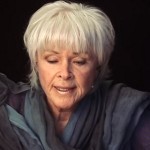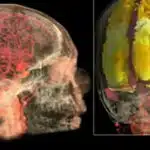“There is a power for good in the universe greater than you are and you can use it.”

“The Science of Mind is the study of Life and the nature of the laws of thought; the conception that we live in a spiritual Universe; that God is in, through, around and for us.”
– Ernest Holmes
Ernest Shurtleff Holmes was born January 21, 1887, on a small farm near Lincoln, Maine, the youngest of the nine sons of William and Anna Heath Holmes. They named their youngest son after a poetic young local preacher, the Reverend Ernest Shurtleff, who wrote the hymn “Lead On O King Eternal” still sung today in churches throughout this country. The nine boys were named, in the order of their arrival: Walter, then came Luther, William, Charles, Harry (who died in infancy) Fenwick, Guy, Jerome and lastly, Ernest.
He acquired “the basics” of education in rural schools: grammar school in Lincoln, and Gould’s Academy in Bethel, Maine.
Later in life while being interviewed about his own beginnings and the beginnings of Religious Science, he was asked about his quitting school at 15. He answered, “I didn’t want to be taken care of, so l went to work. What I have gathered has been from reading, studying and thinking, working, experiencing. It is a long, laborious, tough method, but it pays off. I don’t believe there is a real other method.
“What you will really learn in life will be what you tell yourself, in a language you understand, that you accept…because it is rational enough to accept, and inspirational enough to listen to with feeling…. From the beginning I was a non-conformist, asking so many questions I drove my relatives crazy.” (But he never stopped asking, then or later.) “Fortunately, I was brought up by a mother who refused to have fear taught in her family. New England, theoretically, was pretty strict; but she was a wise woman and she determined we should never be taught there was anything to be afraid of….”
From 1908 to 1910, while working in a grocery store to pay his way, he attended the Leland Powers School of Expression in Boston. During this course in public speaking he learned that one of his instructors was a Christian Scientist who gave him a copy of Science and Health with Key to the Scriptures by Mary Baker Eddy.
The rest of his prodigious learning came from an insatiable curiosity and search for what would be most meaningful for any man to know. He was an omnivorous student of and finally an authority on the universal truths and imperishable ideas manifested through the ages of literature, art, science, philosophy and religion. Holmes said at one time that “Reading Emerson is like drinking water to me.”
After having been given the copy of Science and Health with Key to the Scriptures he also studied the Christian Science of Mary Baker Eddy, as well as the unfoldment of her mentor, Phineas Parkhurst Quimby; but, in the main and throughout the rest of his life, the works of Thomas Troward maintained the place of greatest influence in his thinking.
Though Ernest never made it to college, his brother Fenwicke did graduate and became a Congregational minister in Venice, California. Ernest went to visit him and stayed for a lifetime. He helped his brother with his church and, together, they won a political campaign.
From Cornerstone Books home page we read: In 1914, —– Ernest moved to Venice, California. Pursuing his studies, he discovered the writings of Thomas Troward, which fed the flame ignited by his earlier studies of metaphysics. Almost casually, he began speaking on Troward’s writings to small but ever-growing groups. Without ceremony, his lifetime ministry had begun.
Later, as his audiences grew, he was ordained as a minister of the Divine Science Church.
Those minds that exerted the most influence on Ernest Holmes as he formulated his philosophy were Phineas Quimby, Ralph Waldo Emerson, Plato, and Immanuel Kant.
Phineas Quimby was a New England clockmaker who found the power of the mind to heal after experimenting with mesmerism. He discovered that belief alone makes sick and it is belief alone that heals. He spent the last years of his life in healing work through mental means alone and he became known as the “Father of New Thought” in America.
One of his students that he healed was Mary Baker Eddy who went on to found the Christian Scientist Church when she announced to the world that she had discovered the Christ Science in the year that Quimby died.
Ralph Waldo Emerson, New England philosopher and essayist was born one year after the birth of Phineas Quimby, in Boston. Even though his father was the Reverend William Emerson, a Unitarian minister in a famous line of ministers, Emerson gradually drifted from the doctrines of his father and formulated and first expressed the philosophy of Transcendentalism in his 1836 essay, Nature.
Transcendentalism as a philosophy was first developed by the Greek philosopher, Plato. The word itself means “to transcend” or “go beyond” something — that there are truths that go beyond, or transcend physical proof. These were truths that were known but could not be proved with logic were simply an experience of faith.
The German philosopher, Immanual Kant, gave Transcendentalism its name. Kant was the main influence on Samuel Taylor Coleridge, William Wordsworth, and the Scottish philosopher-historian Thomas Carlyle. These three, and in particular, Carlyle, communicated and discussed philosophies with Ralph Waldo Emerson of Concord, Massachusetts.
American Transcendentalism thus began in the 1840’s as Emerson interacted with Longfellow, Whittier, Oliver Wendell Holmes, Thoreau and Lowell. This influential group of poets, writers and philosophers all were born within a few years and a few miles of each other in New England. The Bhagavad-Gita and the poetry of the Sufis was of great influence on their thought.
Transcendentalism, in addition to incorporating the Oriental and Indian belief systems, teaches that there is a higher reality and greater knowledge than that manifested in the human mind. It divides reality into a realm of spirit and a realm of matter, a basic premise of many of the great religions of the world.
The third great mind and the one with the greatest influence upon Ernest Holmes was Thomas Troward, born in India in 1847. After twenty-five years as a Divisional Judge for the British Empire in India, and at least that many years as a student of the Hindu, Islamic, Judaic and Christian religions and the Bhagavad-Gita, he went back to England where he spent the rest of his life lecturing on his philosophy that was the foundation for all of New Thought in England, Europe and the rest of the world.
In the wisdom, authority, reason and beauty of the works of Troward, Holmes found his most enlightening and uplifting unfoldment and in 1916 began lecturing publicly on the works of Thomas Troward. This became the foundation for his future understanding and in 1926 he published the textbook he titled “The Science of Mind” the content of which is recognized today as one of the leading viewpoints in modern metaphysics.
In 1927 he not only established the Institute of Religious Science, but he also founded the international periodical Science of Mind magazine, which has been in continuous publication since that time. He revised the textbook in 1938, then reorganized the Institute to become The Church of Religious Science in 1953.
He dedicated the Founder’s Church in 1960, then having completed his mission, made his transition from this plane of existence that same year.
In 1967 his great church became known as United Church of Religious Science.

















































